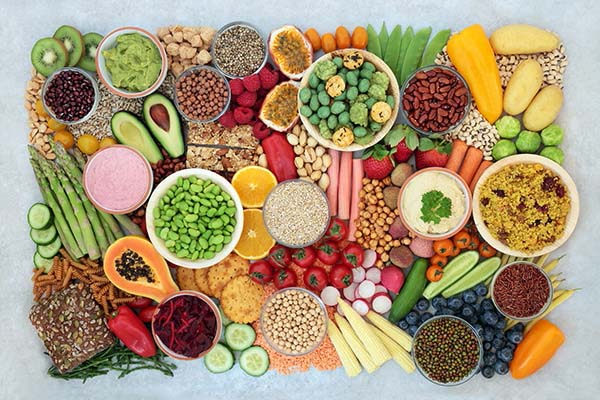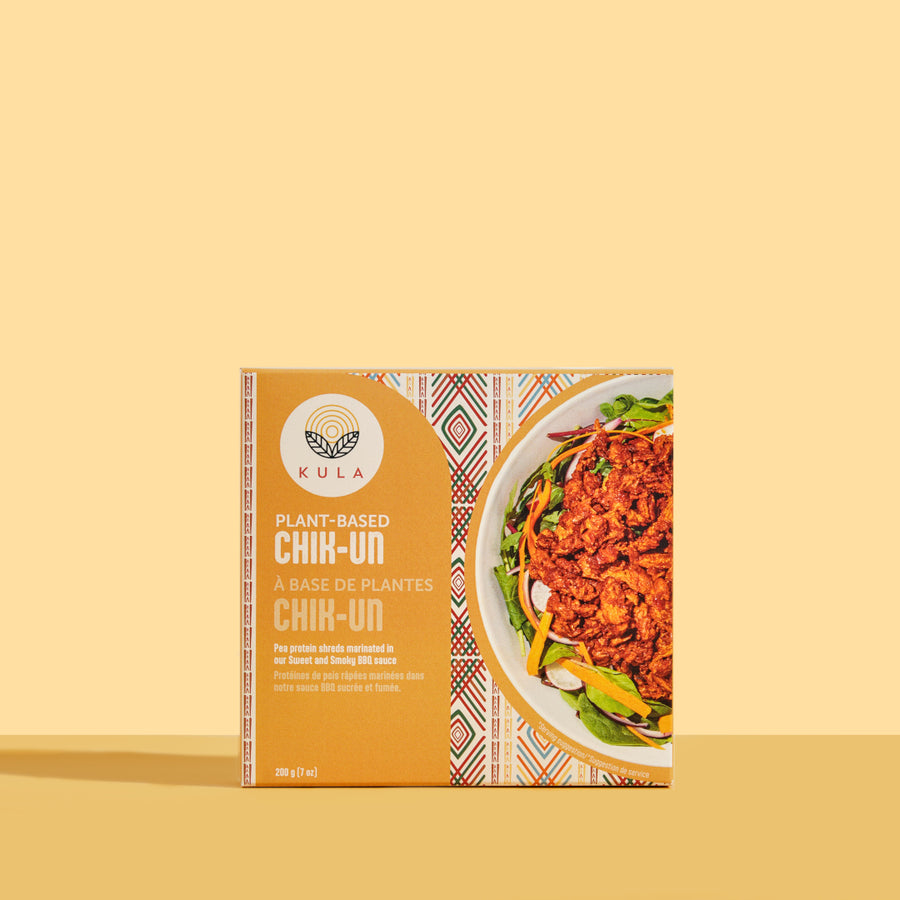5 Creative Plant Based Chicken Dishes That Go Beyond the Basics
5 Creative Plant Based Chicken Dishes That Go Beyond the Basics
Blog Article
All About Healthy Food: Benefits of Taking On Plant Based Choices
The conversation bordering plant-based diet plans has actually gained considerable interest in the last few years. Numerous individuals are discovering the potential wellness advantages, dietary advantages, and environmental impacts connected with these nutritional options. As individuals come to be a lot more conscious of their food's influence on well-being and sustainability, inquiries emerge regarding the practicalities of adopting such a lifestyle. What details modifications can one expect, and how might these selections reshape not only personal health yet likewise the planet's future?
Recognizing Plant-Based Diet Plans
Although lots of people link plant-based diets primarily with vegetarianism or veganism, these diet regimens can include a broad range of eating patterns that focus on whole, minimally refined plant foods. Such diet regimens typically include fruits, vegetables, whole grains, nuts, legumes, and seeds, while restricting or eliminating pet items. This versatility permits individuals to customize their dietary selections according to nutritional demands and individual preferences. Some may adopt a mainly plant-based diet while still sometimes consuming meat or milk, often referred to as a flexitarian technique. The focus remains on including more plant foods, which can cause a varied array of meals and tastes. Comprehending these numerous interpretations of plant-based consuming is necessary for valuing its ease of access and charm in modern food culture.
Health And Wellness Conveniences of Plant-Based Foods
The health benefits of plant-based foods are significant, using a nutrient thickness benefit that sustains overall wellness. Research study suggests that these foods can enhance heart wellness and play a vital duty in reliable weight monitoring. By including more plant-based choices, individuals may enhance their dietary choices and promote long-term health.
Nutrient Density Benefit
Nutrient density plays a necessary duty in the wellness benefits of plant-based foods, making them a compelling choice for those seeking a balanced diet plan. Plant-based foods, such as fruits, veggies, legumes, nuts, and entire grains, are frequently rich in crucial vitamins, minerals, and antioxidants while being lower in calories. This high nutrient thickness allows people to eat less calories while still satisfying their nutritional needs. In addition, these foods are loaded with dietary fiber, promoting digestive health and assisting in weight administration. By incorporating nutrient-dense plant-based options, customers can improve their overall wellness, support their immune systems, and lower the threat of chronic diseases. Inevitably, the nutrient density of plant-based foods underscores their relevance in a health-conscious way of life.
Heart Health Renovation

Weight Monitoring Support
Along with advertising heart health and wellness, a plant-based diet can substantially help in weight monitoring. This dietary approach highlights whole foods such as fruits, vegetables, beans, nuts, and whole grains, which are generally lower in calories and greater in fiber compared to animal-based items. The high fiber content helps enhance satiation, minimizing total calorie intake. Plant-based diets are commonly abundant in important nutrients while reduced in unhealthy fats, making it simpler to keep a healthy and balanced weight. Research suggests that people that adopt a plant-based lifestyle have a tendency to have reduced body mass indexes (BMIs) and experience even more successful weight-loss contrasted to those that eat meat-heavy diets. As a result, accepting plant-based alternatives is a strategic choice for efficient weight administration
Nutritional Value of Plant-Based Ingredients
Plant-based components are rich in important nutrients, using a diverse variety of vitamins, minerals, and anti-oxidants that add to total wellness. A contrast of healthy protein resources discloses that while pet items are usually viewed as superior, many plant-based options supply appropriate healthy protein and various other helpful substances. Comprehending the nutritional value of these ingredients can help people make educated dietary options.
Important Nutrients in Plants
Nutrient-rich ingredients found in plants offer a varied variety of necessary nutrients that contribute significantly to overall wellness. These components are rich in vitamins A, C, and K, which sustain immune feature, vision, and blood clotting, respectively. Additionally, plants supply essential minerals such as potassium, magnesium, and calcium, critical for heart wellness, muscle feature, and bone stamina. The presence of fiber in plant-based foods help digestion and advertises a healthy intestine microbiome. Anti-oxidants, found perfectly in veggies and fruits, assistance fight oxidative anxiety and reduce swelling. In addition, lots of plant foods are low in calories yet high in nutrients, making them a superb choice for those looking for to maintain a healthy and balanced weight while ensuring suitable nutrient intake.
Comparing Protein Sources
Healthy protein resources vary considerably in their nutritional accounts, with plant-based active ingredients using special advantages. Unlike pet healthy proteins, which commonly consist of saturated fats and cholesterol, plant proteins often tend to be reduced in these unhealthy components. Legumes, nuts, seeds, and entire grains are rich in important amino acids, fiber, vitamins, and minerals. Lentils provide high healthy protein material alongside substantial iron and folate, while quinoa is a complete healthy protein, providing all 9 necessary amino acids. Additionally, plant-based healthy proteins are typically accompanied by anti-oxidants and phytochemicals that support general health. The change to plant-based protein sources not just improves dietary intake yet also straightens with sustainable nutritional practices, over here minimizing ecological effect and advertising long-term health and wellness benefits.
Ecological Influence of Plant-Based Eating
As recognition of climate modification grows, several individuals are discovering sustainable nutritional selections that can considerably reduce their environmental footprint. Plant-based consuming has emerged as a substantial contributor to lowering greenhouse gas emissions, which are mostly connected with livestock manufacturing. The cultivation of fruits, vegetables, grains, and veggies commonly requires fewer resources, such as water and land, compared to pet farming. In addition, plant-based diets can result in reduced deforestation, as much less land is required for grazing animals or growing animal feed. By shifting towards plant-based choices, customers can sustain biodiversity and advertise much healthier communities. Generally, accepting plant-based consuming not just advantages individual wellness yet additionally stands for a vital step toward environmental sustainability and conservation initiatives.
Conquering Common Misconceptions
While many individuals recognize the benefits of a plant-based diet regimen, several misunderstandings commonly discourage them from totally welcoming this way of life. An usual belief is that plant-based diets do not have adequate healthy protein; nonetheless, countless plant resources, such as vegetables, nuts, and tofu, give ample healthy protein. In addition, some presume that this diet plan is pricey, when in truth, staples like beans, rice, and seasonal vegetables can be quite economical. Another misconception is that plant-based eating is extremely limiting, whereas it really offers a varied variety of tastes and foods. Lastly, many worry that a plant-based diet plan might cause deficiencies, yet with correct preparation, people can acquire all necessary nutrients, consisting of minerals and vitamins, while delighting in a wide you could try here range of tasty dishes.
Tips for Transitioning to a Plant-Based Way of living
Making the shift to a plant-based way of life can be an enriching experience, though it usually needs some advice to navigate the first modifications. Individuals are motivated to start progressively, incorporating more fruits, veggies, beans, and whole grains right into their dishes while decreasing meat and milk intake. Meal preparation is important; preparing a regular food selection can aid relieve the adjustment and prevent last-minute undesirable options. Discovering cooking approaches and brand-new recipes can additionally boost the experience and keep enjoyment concerning plant-based consuming. Additionally, joining support system or communities can give motivation and share useful ideas. helpful site Finally, staying educated concerning nutrition assurances well balanced dishes, protecting against deficiencies while fostering a healthy, gratifying plant-based lifestyle.
Delicious Plant-Based Dish Concepts
Exploring scrumptious plant-based meal ideas can motivate people to welcome a much more nourishing diet. One prominent alternative is a hearty quinoa salad, featuring cherry tomatoes, cucumber, and a zesty lemon-tahini dressing. An additional fave is a tasty lentil stew, loaded with carrots, celery, and aromatic natural herbs, perfect for a calming dinner. For breakfast, over night oats made with almond milk, chia seeds, and covered with fresh berries provide a nutritious beginning to the day. Additionally, a dynamic veggie stir-fry with tofu and a variety of vibrant veggies can be a quick yet pleasing dish. Creamy avocado toast on whole-grain bread, sprinkled with flavors and seeds, uses a straightforward yet savory treat. These dishes display the selection and splendor of plant-based consuming.

Often Asked Questions
Can a Plant-Based Diet Regimen Supply Enough Healthy Protein?
The concern of whether a plant-based diet can give adequate protein is usual. Various resources, consisting of legumes, nuts, seeds, and entire grains, can meet healthy protein needs effectively, supporting a nourishing and balanced diet plan for people.
Are Plant-Based Diet Regimens Ideal for Children?
The viability of plant-based diets for kids depends on cautious planning. Appropriate nutrients must be ensured, including minerals, proteins, and vitamins. With correct assistance, such diet regimens can support healthy development and development in kids.
Just how Do I Dine Out on a Plant-Based Diet plan?
Eating out on a plant-based diet includes looking for restaurants with diverse food selections, requesting for modifications, and checking out vegan-friendly choices. Planning ahead and connecting dietary preferences can improve the eating experience while maintaining dietary options.
What Prevail Allergens in Plant-Based Foods?
Typical allergens in plant-based foods consist of soy, gluten, nuts, and seeds - Plant Based Chicken. People adhering to a plant-based diet regimen should be conscious of these irritants and review tags carefully to avoid negative responses and assure safe consumption
Can Plant-Based Diets Assist With Fat Burning?
Study indicates that adopting a plant-based diet may help with weight-loss because of its commonly reduced calorie thickness and greater fiber material. This mix can improve satiety, assisting individuals manage their caloric intake effectively. Many people link plant-based diet regimens mostly with vegetarianism or veganism, these diet regimens can incorporate a broad variety of eating patterns that prioritize entire, minimally refined plant foods. Nutrient thickness plays a necessary function in the health and wellness benefits of plant-based foods, making them a compelling selection for those looking for a balanced diet. Plant-based diets have actually been revealed to significantly enhance heart health, as they often have components that support cardiovascular feature. In enhancement to promoting heart wellness, a plant-based diet plan can significantly aid in weight monitoring. A typical belief is that plant-based diet plans lack sufficient healthy protein; nevertheless, various plant resources, such as vegetables, nuts, and tofu, provide enough protein.
Report this page